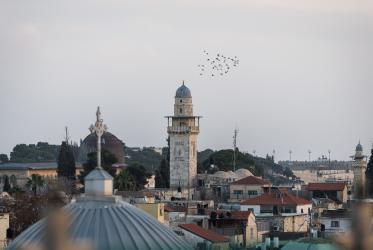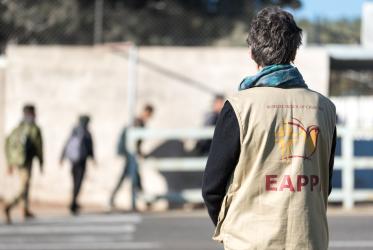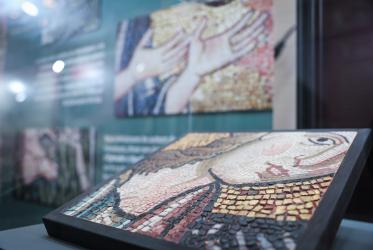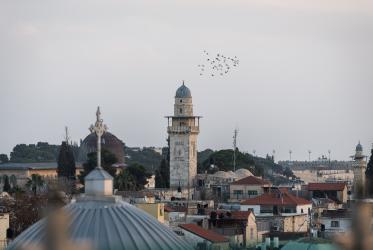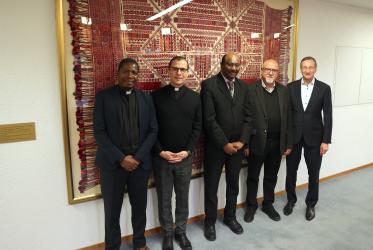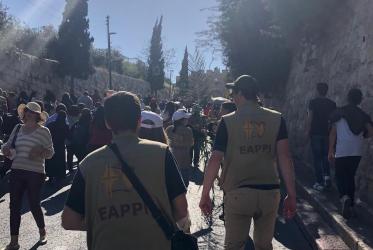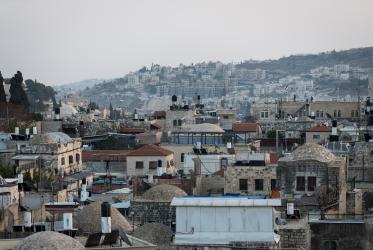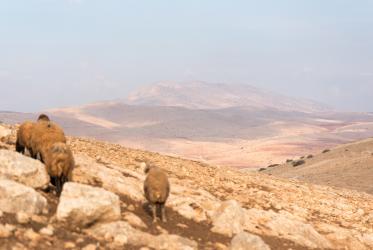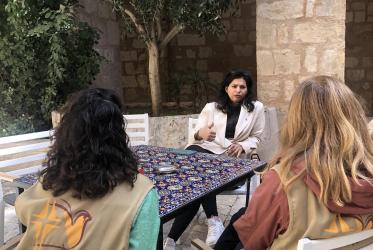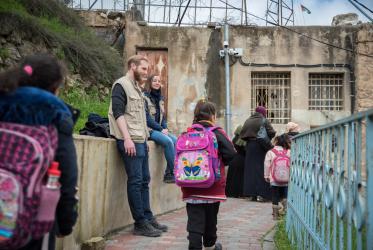Displaying 21 - 40 of 206
WCC calls for a new approach to conflict in Palestine and Israel
13 October 2023
Ecumenical accompaniers report growing violence against Palestinians
21 September 2023
WCC marks 75th commemoration of “Al-Nakba”
16 May 2023
WCC calls for an end to violence in West Bank
23 February 2023

